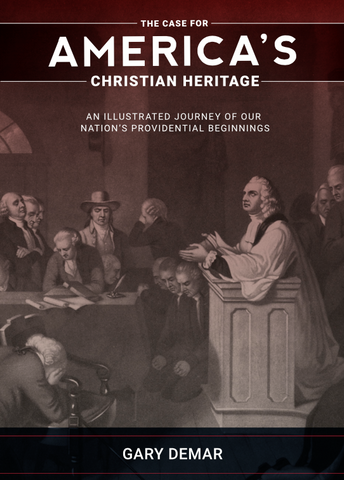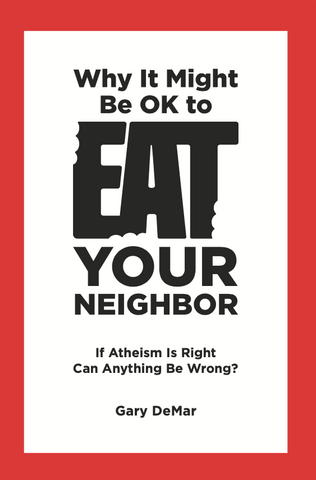It must not be forgotten that under the Puritans in Massachusetts there was no religious freedom. They persecuted those who did not believe their way. Many of those calling for a return to “Christian America” have forgotten what this so-called “Christian” state was like. Ironically, some of them are Baptists, who have forgotten that Roger Williams—a Baptist preacher and signer of the Declaration of Independence and the Constitution—founded the state of Rhode Island to serve as a refuge from religious persecution by the Puritans![1]
What’s wrong with this descriptive picture? The simplistic interpretation of colonial history is certainly evident. And I was not aware that Roger Williams, who died in 1683, signed the Declaration of Independence (1776) and the Constitution (1787). The above quotation appears in Norman Geisler (1932-2019) and Frank Turek’s Legislating Morality, a poorly reasoned book that is endorsed by Christian writers and scholars who ought to know better.
Poor scholarship is not foreign to Dr. Geisler. For example, in his book Is Man the Measure?, he writes that when “George Washington was asked if the United States was a Christian country, he replied that ‘the government of the United States of America is not in any sense founded on the Christian religion.’”[2] Washington was never asked this question, and he never said the United States was not a Christian country. The above phrase about America not being founded as a Christian nation appears in a treaty made with Tripoli in 1797. Geisler does not tell his readers that the line was deleted from the revised 1805 treaty during Jefferson’s administration.[3] See my book The Case for America’s Christian Heritage for a comprehensive study of the Treaty of Tripoli.

The Case for America's Christian Heritage
There’s much work before us to reset the foundation stones of a firm reliance on Divine Providence. We need to heed the words of Benjamin Franklin who quoted Psalm 127:1 during the drafting process of the Constitution: “except the Lord build the house they labor in vain that build it,” and “that without His concurring aid we shall succeed in this political building no better, than the Builders of Babel.” The principles that were true and necessary centuries ago for building nations are equally true and necessary today.
Buy NowIn the article “A Premillennial View of Law and Government” in the October 1985 issue of Moody Monthly, Geisler claimed that theonomists mandated that capital punishment should be administered for drunkards. Dr. Greg Bahnsen holds the opposite position as stated in his book Theonomy in Christian Ethics (Craig Press, 1977, 213). Similar examples of poor scholarship abound in Geisler’s writings [4] and other critics of theonomic ethics and Christian Reconstruction. See The Debate Over Christian Reconstruction and Theonomy: An Informed Response.
Would Geisler and Turek claim that it is wrong to appeal to the Bible when debating the issue of homosexuality with civil representatives?
Legislating Morality is a dangerous and irresponsible book because it falls into the trap of advocating religious neutrality and that law can be separated from religion. Christianity becomes just one religion among many that has nothing unique or prophetic to say to the world about social, ethical, and cultural issues.
Geisler and Turek have set aside the Bible and dusted off Enlightenment “theology.” Instead of appealing to the Bible in legislating morality, Geisler and Turek believe that a sense of “fairness” should be our moral guide. They write:
Since this sense of fairness came naturally to all people, Jefferson appropriately referred to it as part of the “Laws of Nature.” This was also known as “Natural Law,” or the “Moral Law,” or more commonly called “Conscience.” From the Moral Law, Jefferson observed that the “self-evident,” “unalienable Rights” of all people should be protected by a government established by the people.[5]
If a “sense of fairness came naturally to all people,” there would be no dispute over what people believe is fair. If both sides in the dispute had the same moral law and the same sense of fairness, then why did war break out between the two antagonists in the War for Independence? “The anointed and the benighted do not argue on the same moral plane or play by the same cold rules of logic and evidence.”[6]
Contrary to Geisler and Turek, even those sharing the same social and cultural stratum do not agree on what’s fair or moral. As a panelist at the American Academy of Religion/Society of Biblical Literature conference stated, “What counts as abuse differs from society to society; so we can’t really use the word ‘abuse’ without tying it to a historical context.”[7] In an era where moral relativism reigns, “there are no all-encompassing, objective moral laws to which we must all submit.”[8]
With the publication of Darwin’s Origin of Species in 1859, the idea of fairness disappeared altogether. If the physical cosmos is evolving and changing, and moral law is analogous to physical laws, then moral law is also evolving and changing. “The process of nature was now portrayed not as a perfect working of law, but as a blind, unconscious energy working profligately to express itself.” Even so, belief in science has replaced a moral universe governed by a personal God. Americans have repeatedly been told to “believe in the powers of science in part because it has enabled men to control the world, but also because of a myth in our culture about the power of science. A 16th Century man might attempt to create a penal system according to the ‘laws of God’; a 20th Century one would hope to create a ‘scientific one.’”[9]

Why It Might Be OK to Eat Your Neighbor
The most damning assessment of a matter-only cosmos devoid of a Creator is that we got to this place in our evolutionary history by acts of violence whereby the strong conquered the weak with no one to support or condemn them. Why It Might Be OK to Eat Your Neighbor repeatedly raises the issue of accounting for the conscience, good and evil, and loving our neighbor. It’s shocking to read what atheists say about a cosmos devoid of meaning and morality.
Buy NowGeisler and Turek claim that everyone knows the content of the moral law, what they define as “a moral kind of common sense.”[10] This was true as long as biblical law was dominant. At the time of the drafting of the Declaration and Constitution in eighteenth-century America, people were raised on the Bible. The moral law and the “Laws of Nature” had specific moral content because the people knew the laws of the Bible. The claim can be made that even Jefferson’s understanding of the moral law was based on his knowledge of the Bible, specifically the four gospels. In a letter to Charles Thompson in 1816, Jefferson writes:
I, too, have made a wee book little book from the same materials, which I call the philosophy of Jesus; it is a paradigm of his doctrines, made by cutting the texts out of the book, and arranging them on the pages of a blank book, in certain order of time or subject. A more beautiful or precious morsel of ethics I have never seen; it is a document in proof that I am a real Christian, that is to say, a disciple of the doctrines of Jesus.[11]
An analogy might help to put all of this into perspective. The Bible gives content to the Moral Law in the same way that the sun gives light to the moon, giving the appearance that the moon has its own light. The moon’s light is reflective. The moon has no light of its own. It shines because it is receiving light from an independent source of light, the sun. Geisler and Turek maintain that their moon (the moral law) is an independent light that does not need the reflective light from the sun (the Bible) to shine. While they are trying to establish the independence of the moral law, they are using the sun’s rays to give light to their moon. Geisler and Turek are working within the moral framework of the Bible. No moral framework is possible if nature is red in tooth and claw.
[1] Norman Geisler and Frank Turek, Legislating Morality (Minneapolis, MN: Bethany House, 1998), 101.
[2] Norman L. Geisler, Is Man the Measure: An Evaluation of Contemporary Humanism (Grand Rapids, MI: Baker Book House, 1983), 124‑25.
[3] See Gary DeMar, America’s Christian History: The Untold Story (Atlanta, GA: American Vision, 1995), chapter 8.
[4] See Gary DeMar, “The Sorry State of Christian Scholarship,” Theonomy: An Informed Response, ed. Gary North (Powder Springs, GA: American Vision, [1991] 2023), 352-357.
[5] Geisler and Turek, Legislating Morality, 19.
[6] Thomas Sowell, The Vision of the Anointed: Self-Congratulation as a Basis for Social Policy (New York: Basic Books, 1995), 3.
[7] Quoted in William Lane Craig, Reasonable Faith (Wheaton, IL: Crossway Books, 1994), 73–74.
[8] Paul Copan, “True for You, But Not For Me”: Deflating the Slogans that Leave Christians Speechless (Minneapolis, MN: Bethany House, 1998), 43.
[9] C. H. Dodd, Sociologists and Religion, ed. Susan Budd (London, 1973), 144.
[10] Geisler and Turek, Legislating Morality, 24.
[11] Cited by Douglas E. Lurton in the Foreword to The Jefferson Bible or The Life and Morals of Jesus of Nazareth(Cleveland, OH: The World Publishing Co., 1940), x.

